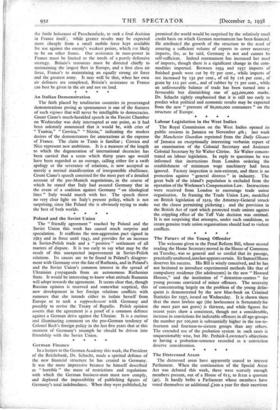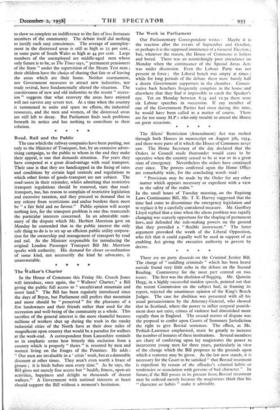The Distressed Areas The distressed areas have apparently ceased to
interest Parliament. When the continuation of the Special Areas Act was debated this week, there were scarcely enough members present, out of a House of 615, to fcrm a quorum (4o), It hardly befits a Parliament whose members have voted themselves an additional £200 a year for their exertions to show so complete an indifference to fate of less fortunate members of the community. The debate itself did nothing to justify such easy consciences. The average of unemploy- ment in the distressed areas is still as high as 25 per cent., in some parts of South Wales as high as 44 per cent. Large numbers of the unemployed are middle-aged men whose only future is to be, as The Times says, " permanent pensioners of the State " under the supervision of the Means Test man ; their children have the choice of sharing that fate or of leaving the areas which are their home. Neither rearmament, nor Government measures to attract new industries, nor trade revival, have fundamentally altered the situation. The sensitiveness of new and old industries to the recent " recess- ion " suggests that what recovery the areas have enjoyed will not survive any severe test. At a time when the country is summoned to unite and spare no efforts, the industrial resources, and the men and women, of the distressed areas are still left to decay. But Parliament finds such problems beneath its notice and has nothing to contribute to their solution.
* * * *



























































 Previous page
Previous page